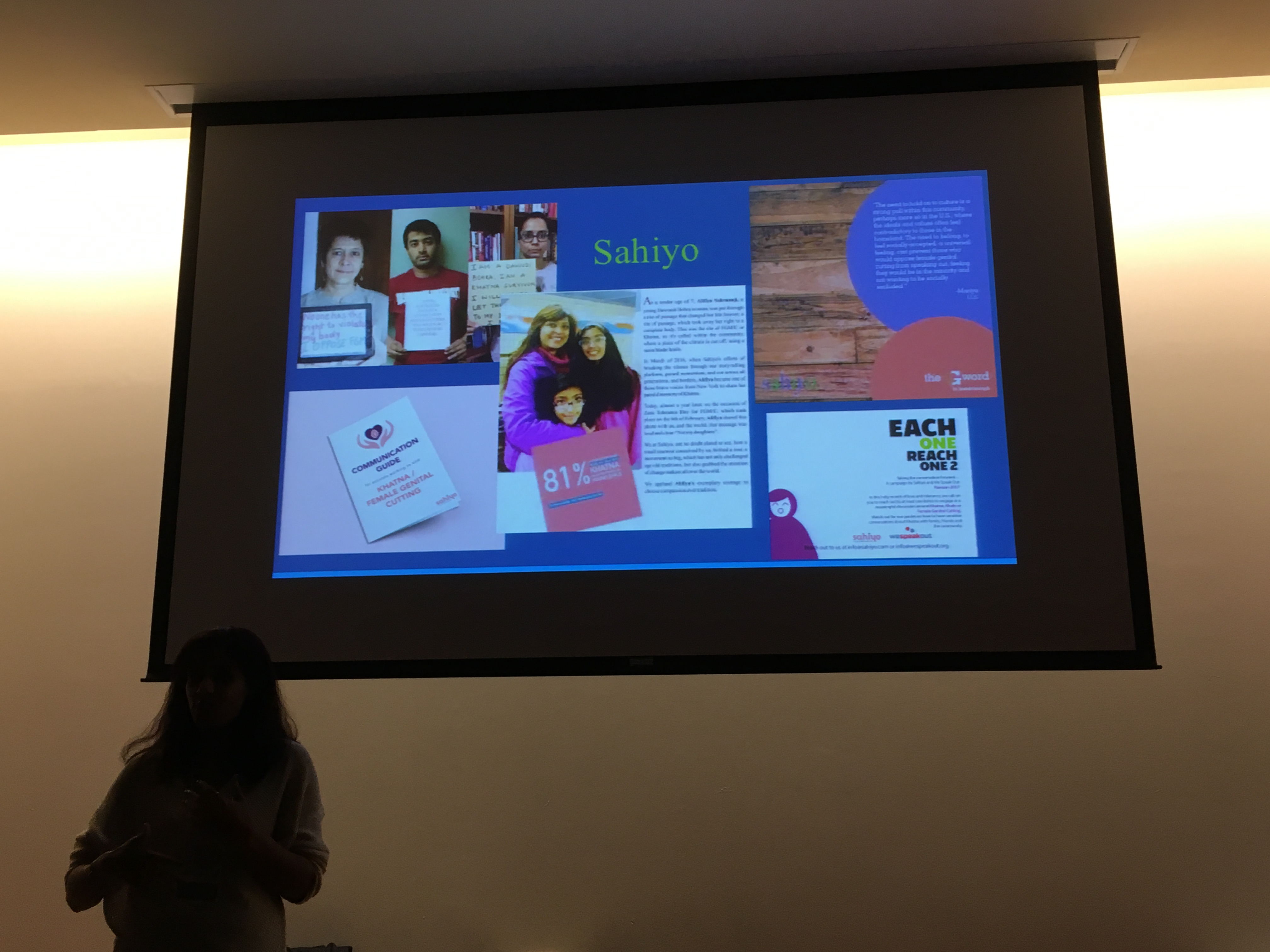By Anonymous
Country of Residence: United States
I am not a survivor of female genital mutilation/cutting (FGM/C). In fact, my father is vehemently opposed to the practice. Even though I was shielded from FGM/C, I know loved ones who have undergone the procedure. One of those survivors is my mom.
My parents are from Somaliland, which lies on the northwestern part of Somalia, but we now live in the United States. FGM/C has evolved into a cultural practice in Somaliland that has strong social roots. There is a lot of stigma if you aren’t cut (guilt, shame, neglect). My experience within the Somali community is that FGM/C has been discussed within the realm of religious theology as an acceptable form of practice. The only problem is that there is no religious text in the Quran that advocates or allows this practice. Granted, FGM/C is practiced around the world for a variety of reasons. But it is vital to highlight our personal experiences which will enable us to find collective solutions to end the practice.
I didn’t know much about FGM/C until I immigrated to the United States. The irony is that it’s a common practice passed down through generations, but it’s a closely guarded secret. No one talks about it unless it’s your time to undergo the procedure. After I looked into the different forms of FGM/C and the harmful effects, I was immediately repulsed by the actions of my community. I was enraged that the perpetrators of FGM/C were not held accountable for committing a human rights violation. I just can’t fathom how my community would eagerly rally against islamophobia, but turn a blind eye to FGM/C.
I faced a dilemma. I was harboring these feelings against my community because I just couldn’t understand the rationale of the people who are advocates of FGM/C. I was concerned that my emotions were clouding my judgment. One day I built up the courage to ask someone who could provide me some context: my mom. I am not sure why I waited until the end of this year to ask my mom why FGM/C is so prevalent in our community, but perhaps I was petrified of how she would react. I was fortunate to have the guidance of Mariya Taher (co-founder of Sahiyo) to prepare me for this day.
The type of FGM/C procedure that my mom endured is common amongst Somali women. Known as infibulation, it is typically the most severe form. My mom was very candid in her experience as she vividly disclosed the trauma and pain she went through. During our intense conversation, I interrupted her because at some point, it was too painful to digest. In the end, she confided in me. “We weren’t educated at that time, and we just did what we thought was right,” she said.
We can’t trace when the practice of FGM/C had its initial roots in my family, but something clicked inside my head in relation to intergenerational trauma. My grandmother was exposed to the same FGM/C procedure as my mom. Despite the agony, my grandmother is convinced it was the right thing to do. After all, that’s all she knows. Even though my grandmother made the decision for my mom to go through FGM/C, it doesn’t mean that she is a terrible individual. If I had to describe my grandmother, the first thing that would come to mind is her independence. She is fierce, loving, generous and vocal. She would never hesitate to express her opinion. It’s a shocking that my grandmother advocated for the practice of FGM/C because it just didn’t fit in with her persona. This is where intergenerational trauma comes into effect.You endure a traumatic experience and one of the ways to cope with that specific experience is to normalize it. If you are not provided the proper mechanisms to manage trauma, it will manifest itself often at the expense of your loved ones.
For a long time, I believed that FGM/C was only practiced in my community. Then I was exposed to data that demonstrated the wide reach of FGM/C. I believe that education and dialogue are crucial to creating solutions for the practice to end. We must not shame communities, but bring awareness of the life threatening risks associated with the procedures that so many girls endure. I believe in humanity and even though the practice of FGM/C is harmful, there is still room for hope.






